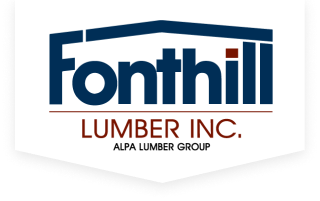Choosing The Right Roof Truss For Your Next Residential Build

Each new residential construction project brings its unique challenges and requirements. While the former can be fun to figure out, the latter requires careful consideration before you start building in earnest. One of the key considerations you have to be mindful of includes choosing the right roof truss, which by no means is an easy decision.
Coming in many types along with the option of custom roof trusses, these engineered structures form the backbone of any home’s roof. Ergo, selecting the right type is critical. After all, the integrity and success of your entire build depends on it.
In this blog, we will explore how you can make the right roof truss choice, so let us begin!
The Importance Of Roof Trusses For Residential Construction
We do not mean to exaggerate, but without roof trusses, the entire structure you build can collapse. Lending structural integrity and stability to every roof they are used in, trusses literally carry the load so the rest of the home’s lifespan can expand. Other than that, builders get to enjoy plenty of other advantages when they use roof trusses:
- Quick installation
- Enhanced structural precision and stability
- Greater cost efficiency
- Increased design flexibility
If you want to spend less time and effort framing the house you plan to build, roof trusses are the way to go. Homeowners will appreciate you choosing strong, code-compliant roof systems, as it will give them the added peace of mind and security they need to know they are living in an enduring house.
Key Factors That Influence Your Roof Truss Choice
Before you visit your local lumber yard to pick out roof trusses for your next project, you should factor in a few key points that can majorly influence your final selection. These include:
1. Roof style and pitch
Consult with your architect about the intended design for the home in question. Is it supposed to have a contemporary design language, complete with a flat roof? Or perhaps it is supposed to go down the traditional path and feature a slanting roof with steep gables. Either way, you do not have to worry about whether trusses can accommodate the design of your proposed build. You always have the option of picking customized trusses that suit various pitches and styles – including hip, gable, scissor, mono, and more.
2. Span and load requirements
Every single one of your residential projects will come with its own set of span and load requirements. The roof truss you ultimately choose must account for the proposed width of the entire structure, along with its anticipated loads such as roofing material, snow, and wind. It is best to get custom-made trusses to ensure your project’s requirements are fully met.
3. Interior space considerations
Whether an attic storage is on the cards or a vaulted ceiling, your intentions for the space will determine the truss you select.
A sidenote: Scissor trusses work well if vaulted ceilings are a part of the design. Meanwhile, attic trusses are perfect for attics. Both are structurally sound and excel in maximizing available interior space.
4. Local building codes
No matter which corner of Ontario your project is located in, you must ensure it is in line with local building codes. Something that is a guarantee if you pick yours from a reliable lumber yard like Fonthill Lumber Inc., for example.
Common Roof Truss Types For Homes
To help you out with your ultimate roof truss choice, we have listed the common types for you:
- Gable Trusses: Perfect for basic homes
- Hip Trusses: Resistant to wind and made for hipped roofs
- Scissor Trusses: Meant for structurally sound vaulted ceilings
- Attic Trusses: Intended to create attics in homes
- Mono Trusses: Great for sheds and garages
Conclusion
The selection of the right roof trusses for your residential project is not entirely dependent on the above factors. They are just as critical as choosing the right lumber yard that offers you local expertise and reliable delivery. Fonthill Lumber Inc. in Welland, Ontario, delivers on both counts. Call us to get custom trusses that have been specifically designed and engineered for your one-of-a-kind project.


